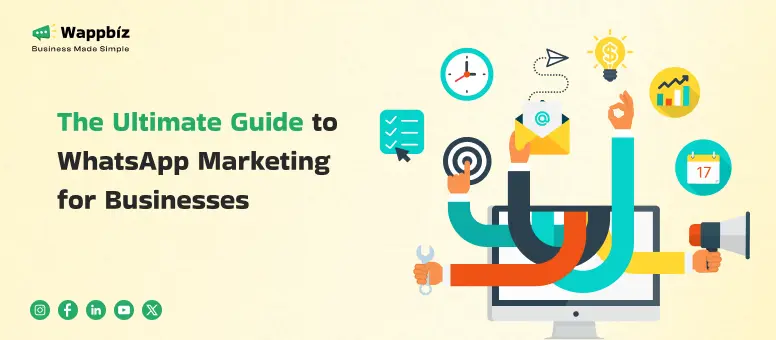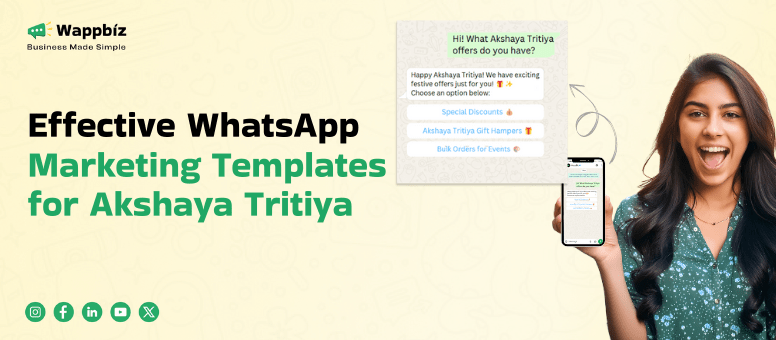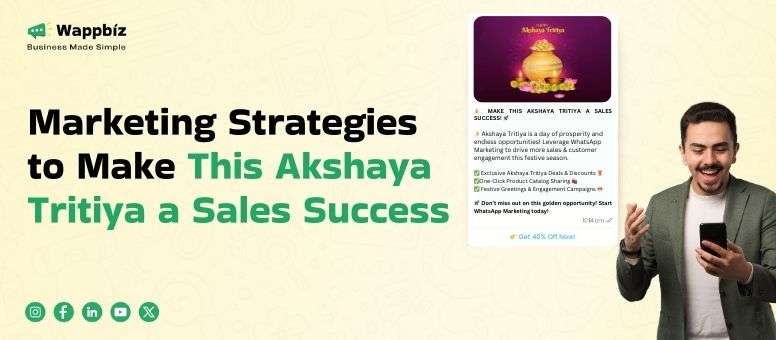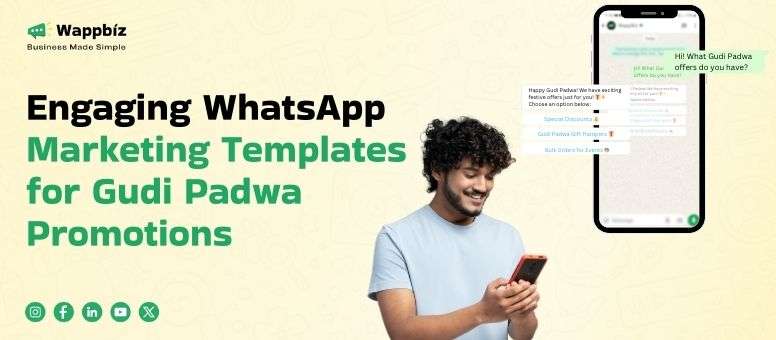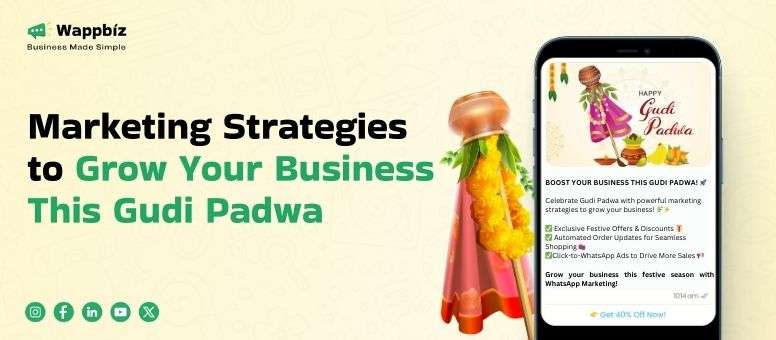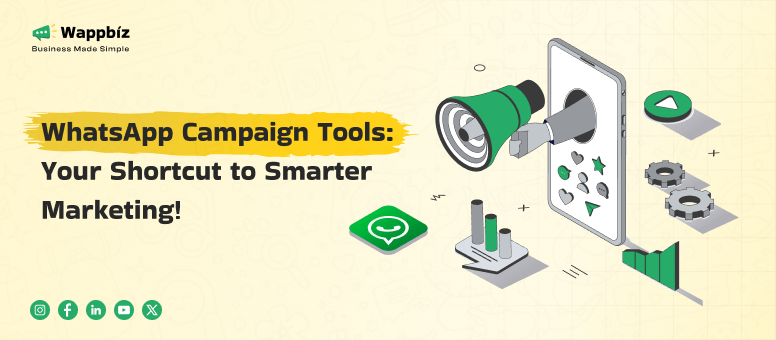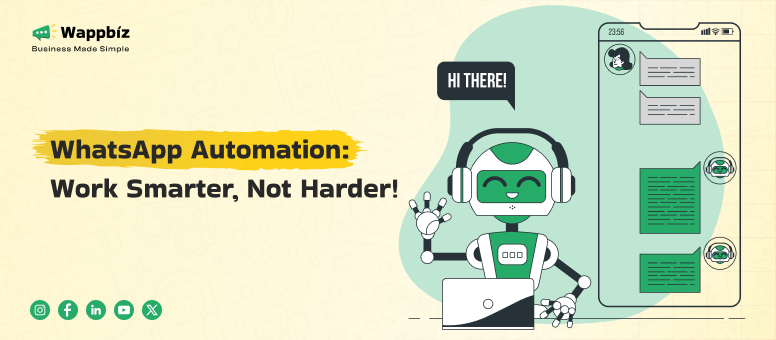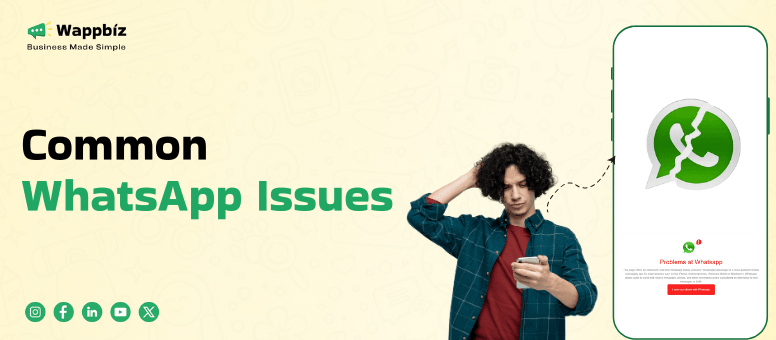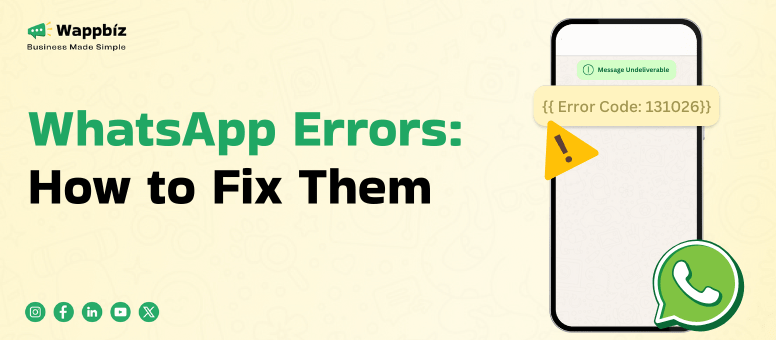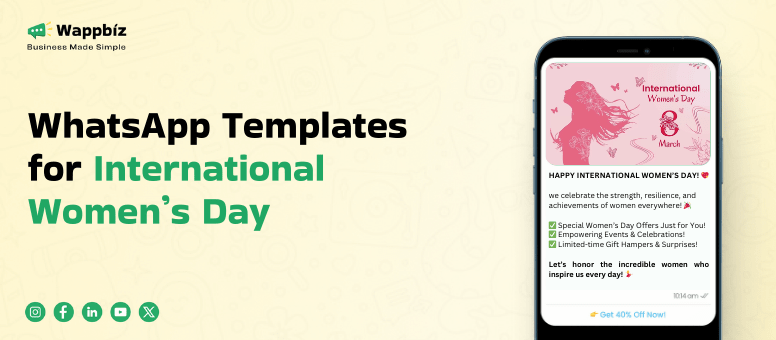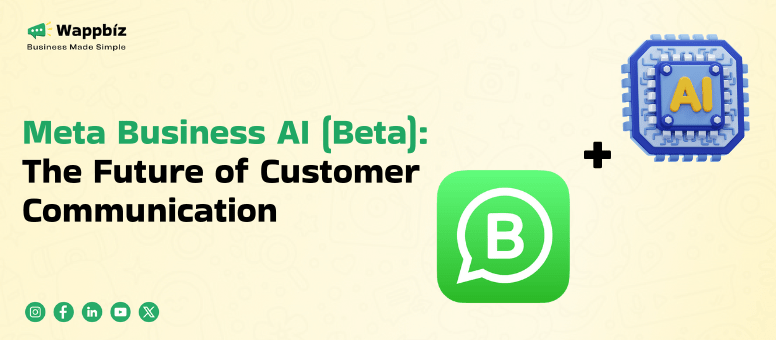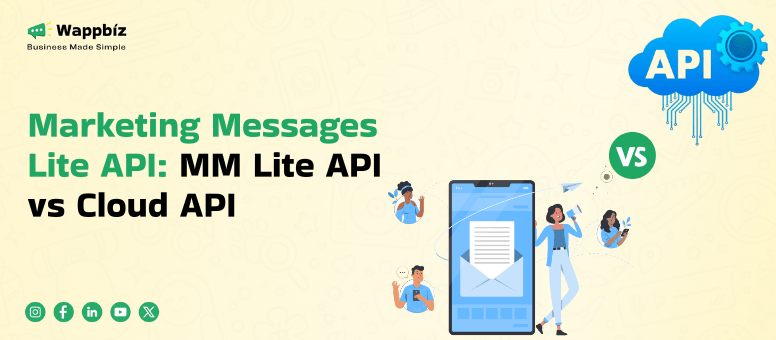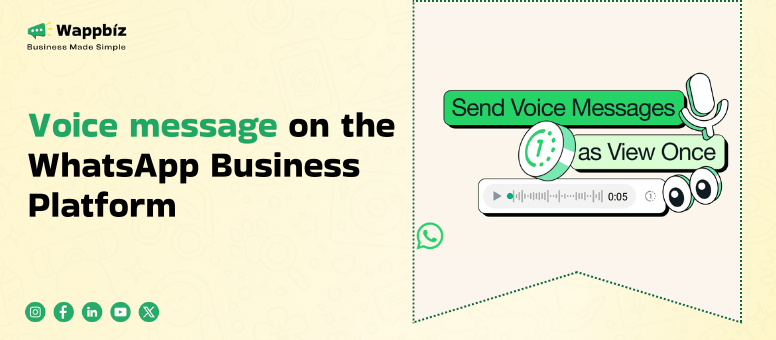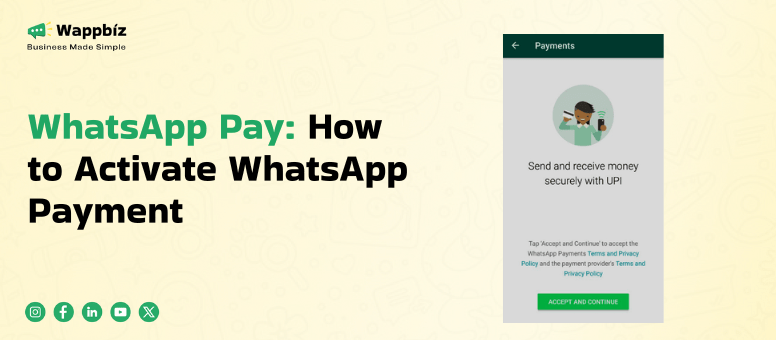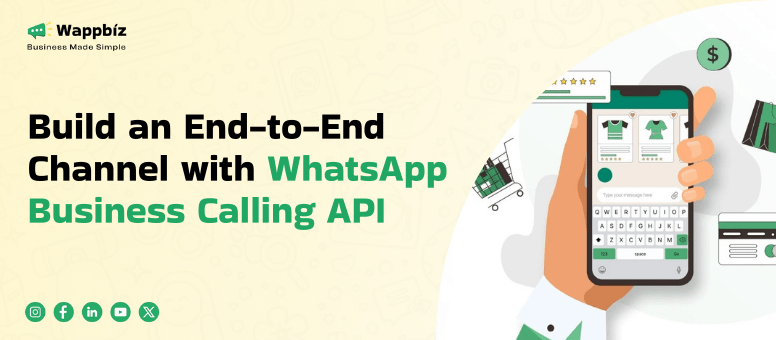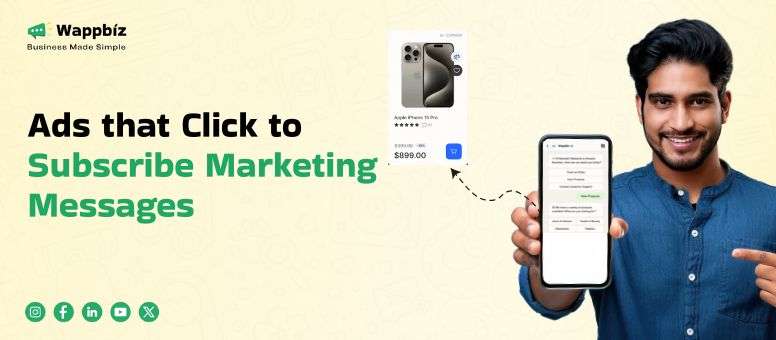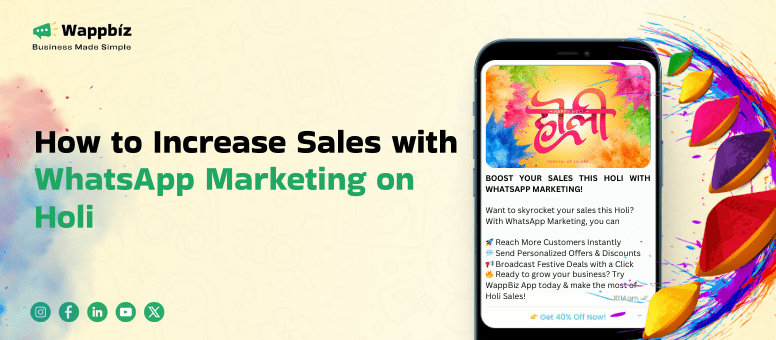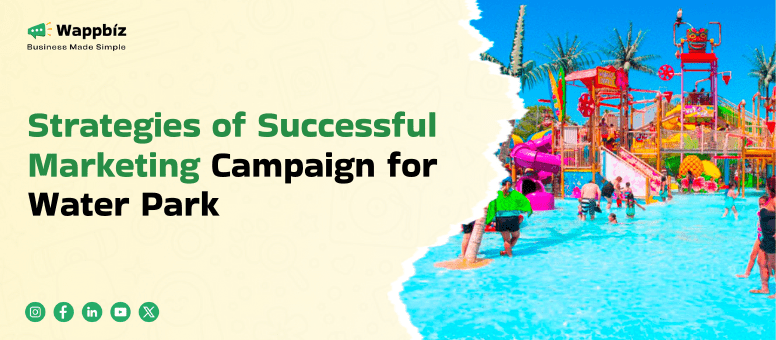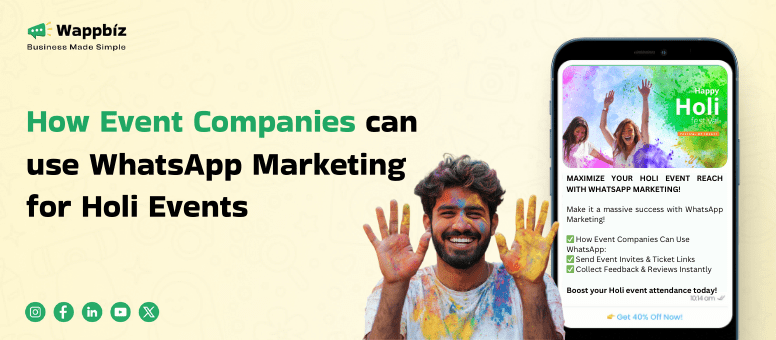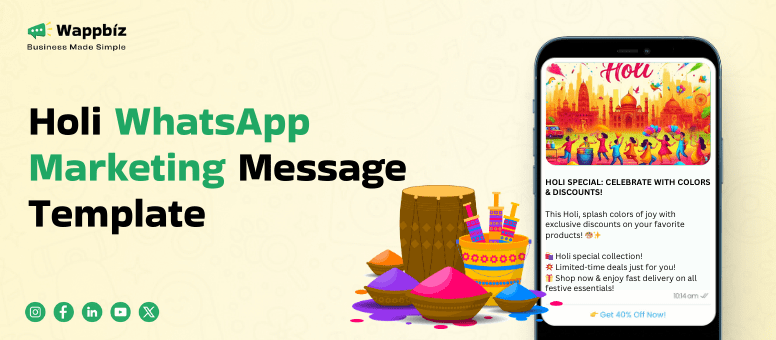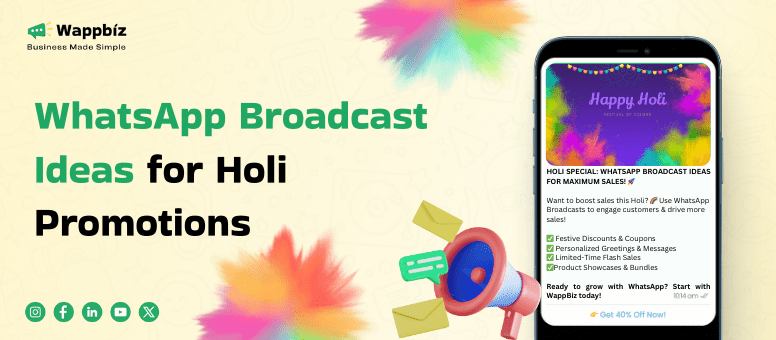Connect instantly, deliver personalized messages, and drive sales—all through an app your customers already love. That’s the power of WhatsApp marketing. By tapping into WhatsApp’s massive user base, businesses can engage audiences, promote products, and offer real-time customer support. Whether you’re a small startup or a large enterprise, WhatsApp marketing builds relationships, converts leads, and boosts customer satisfaction.
Using tools like the WhatsApp Business API, businesses can automate messages, segment audiences, and seamlessly integrate campaigns. It’s more than just sending texts—it’s about crafting comprehensive marketing experiences. From automated replies and chatbots to promotional campaigns, businesses can optimize customer interactions effectively through advanced WhatsApp services and third-party platforms.
WhatsApp marketing goes beyond chats, offering broadcast lists, rich media sharing, and even payment integration with WhatsApp Pay, making it a versatile tool for modern business. The WhatsApp API provides advanced analytics to refine strategies, ensuring every campaign is effective and compliant.
What is WhatsApp Marketing?
WhatsApp Marketing uses WhatsApp to engage with audiences, promote products, and provide customer support, focusing on direct, personalized communication. Businesses utilize the WhatsApp Business App for small-scale operations and the WhatsApp Business API for more advanced solutions like chatbots and automated campaigns, integrating CRM systems to track and personalize customer interactions.
In essence, WhatsApp marketing isn’t about bulk messaging; it’s about building genuine connections and transforming customer engagement through the platform’s extensive features and tools. Whether through chatbots or personalized campaigns, businesses can enhance customer interactions, boost sales, and improve overall satisfaction.
How to Do WhatsApp Marketing for Free: A Step-by-Step Guide
Want to connect with your customers directly and build loyalty? WhatsApp marketing is your answer. With over 2 billion users, it’s the ultimate platform for real-time, personalized engagement that feels natural and authentic. Skip the generic marketing methods and dive into direct, meaningful interactions that turn casual chats into lasting customer relationships. Ready to make WhatsApp marketing work for your business? Let’s explore the steps to craft a winning strategy.
Step 1: Set Up Your WhatsApp Business Account
To get started, you need to set up a WhatsApp Business Account, which is specifically designed to enhance business communication and customer interactions. For small and medium-sized businesses, the WhatsApp Business App is a great option. It comes equipped with essential features like business profiles, automated messages, and quick replies.
For larger organizations that require advanced functionalities such as message automation, audience segmentation, and CRM integration, the WhatsApp Business API is the ideal choice. This API allows businesses to scale their marketing efforts effectively, making it easy to manage and engage with large audiences in a more streamlined manner. With the API, you can also integrate tools like chatbots and WhatsApp marketing software, providing you with an efficient system to enhance customer experience and business growth.
Step 2: Build and Segment Your Contact List
Before you start marketing on WhatsApp, it’s crucial to create a list of contacts who have opted in to receive messages from your business. WhatsApp’s policies strictly mandate obtaining explicit consent from users, ensuring that your communications are welcome and relevant. Here’s how you can build your contact list effectively:
- Click-to-Chat Links: Place these links on your website, social media platforms, and email campaigns to encourage users to start a conversation with you on WhatsApp.
- Incentives for Subscriptions: Offer exclusive discounts, early access to sales, or valuable content to motivate users to subscribe to your WhatsApp updates.
- QR Codes: Use WhatsApp QR codes on physical marketing materials like flyers or business cards, making it easy for customers to connect instantly.
Once your list is built, segment it based on various factors such as interests, purchase history, or location. This allows you to send targeted messages, ensuring that your content is relevant and more likely to drive engagement and conversions.
Step 3: Develop Engaging Content and Campaigns
Engaging and valuable content is the cornerstone of successful WhatsApp marketing. Given that WhatsApp is inherently a personal messaging platform, customers expect meaningful and authentic communication. Here are some content strategies that can help you connect effectively:
- Personalized Messages: Utilize the information you’ve gathered about your audience to craft personalized messages, whether it’s special discounts or personalized greetings on special occasions. The WhatsApp Business API allows you to automate these messages on a large scale using chatbots, making personalization both easy and efficient.
- Rich Media Content: WhatsApp supports multimedia messages like images, videos, and catalogs. Take advantage of these features by sharing engaging visuals, such as product demonstrations, customer testimonials, or infographics. Such content stands out and keeps your audience engaged.
- Broadcast Messages: Use broadcast lists to send important updates, new product announcements, or special promotions to segmented groups simultaneously. This is an effective way to engage with multiple users without the need for creating group chats, keeping the interaction professional and efficient.
Step 4: Automate and Optimize with Chatbots
Automating customer interactions using chatbots is a powerful way to manage communication on a larger scale. WhatsApp chatbots can handle various customer queries, automate responses, and manage key processes like sales, bookings, and order confirmations. This not only streamlines business operations but also ensures that customers receive prompt and accurate responses.
To set up a chatbot:
- Partner with a trusted WhatsApp marketing service provider that specializes in chatbot development and integration with the WhatsApp API.
- Ensure your chatbot is programmed to respond in a human-like manner, enhancing the customer experience and making interactions more engaging.
- Regularly update and optimize the chatbot based on user feedback and new business needs to improve its efficiency and keep it relevant.
Step 5: Measure and Optimize Your Campaigns
The success of any marketing strategy depends on measuring performance and making data-driven improvements. With the WhatsApp Business API, you can access detailed analytics that provide insights into user behavior and campaign effectiveness. Here’s how to make the most of these insights:
- Analytics Tools: Integrate WhatsApp with analytics platforms to track key metrics such as open rates, response times, and click-through rates. This data helps you understand what’s working and what needs improvement.
- A/B Testing: Experiment with different messages, formats, and timing to determine what resonates best with your audience. This helps you refine your campaigns for maximum impact.
- Customer Feedback: Collect feedback through surveys or quick rating systems within WhatsApp to gauge customer satisfaction and preferences. This valuable information helps tailor future campaigns to meet customer expectations.
Step 6: Stay Compliant and Respect User Privacy
WhatsApp has strict guidelines to maintain a secure and spam-free environment, so adhering to these policies is crucial for the longevity and effectiveness of your marketing efforts. Make sure you:
- Obtain explicit opt-in permission from users before adding them to your marketing lists to ensure compliance and build trust.
- Use only WhatsApp-approved message templates for promotional content to avoid penalties or account bans.
- Protect user data and comply with privacy regulations like GDPR to maintain user trust and adhere to legal standards, particularly in regions with stringent privacy laws.
Also Read: WhatsApp Business Account: A Powerful Tool for Your Business

Conclusion
WhatsApp marketing offers businesses a direct, personalized, and efficient way to engage with their audience. Whether you are a small business or a large enterprise, leveraging tools like the WhatsApp Business API, chatbots, and advanced analytics allows you to scale your efforts, create impactful campaigns, and build meaningful customer relationships.
If your business hasn’t yet tapped into WhatsApp’s potential, now is the perfect time to start. Build your contact list, create engaging campaigns, and take advantage of WhatsApp’s powerful features to connect with your customers and transform your marketing strategy.
Take Action
Looking to enhance your WhatsApp marketing efforts? Collaborating with expert providers, like those offering advanced API solutions, can be your game-changer. Unlock the full potential of WhatsApp today and see your business thrive in new, exciting ways.
FAQS
How Can we Use WhatsApp as a marketing tool?
Set up a WhatsApp Business account, grow your contact list, and engage customers using broadcast messages, chatbots, and multimedia content.
Is WhatsApp Marketing better than Email Marketing?
WhatsApp offers instant, personalized communication, but its effectiveness varies based on your audience and specific campaign objectives.
Is WhatsApp Marketing Legal?
Yes, as long as you follow WhatsApp’s policies, obtain user consent, and comply with privacy regulations like GDPR.
How do I Get leads for WhatsApp Marketing?
Leverage click-to-chat links, QR codes, and exclusive incentives on your website and social channels to build an opt-in contact list.
How can I use the WhatsApp Business API for Marketing purposes?
Automate interactions, segment campaigns, and use chatbots to deliver personalized and engaging marketing experiences.
What are some WhatsApp Marketing Campaign Examples?
Examples include drip campaigns, product launch updates, and flash sale alerts with tailored, interactive messaging.
What is the Difference between WhatsApp Business App and API?
The WhatsApp Business App is suited for small businesses managing direct customer interactions, while the API is for larger enterprises needing automation and scalability.
Can I automate WhatsApp marketing?
Yes, with the WhatsApp API, you can automate messages, use chatbots, and schedule campaigns through integration with platforms like Wappbiz.

